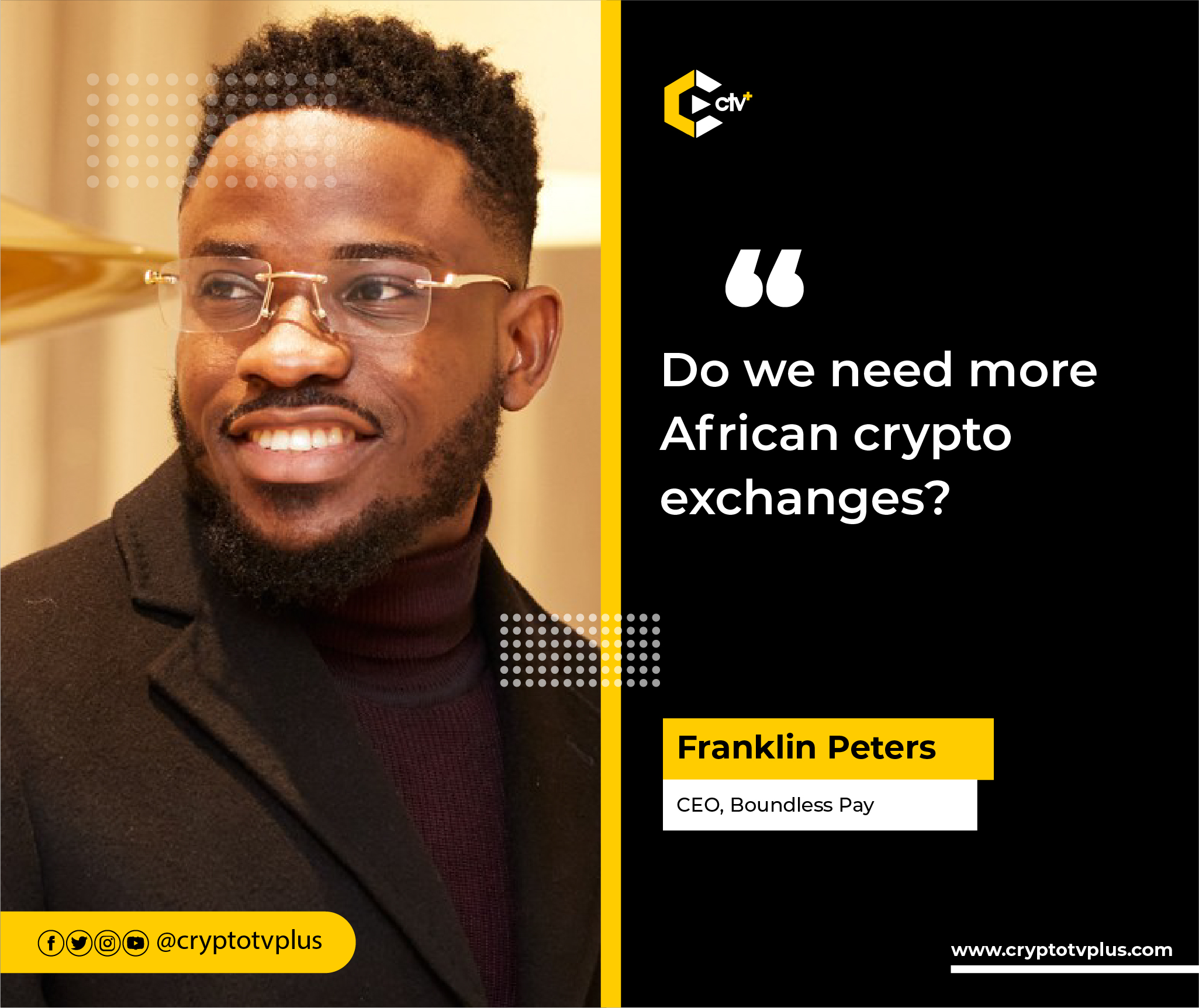FEATURED
Do we need more African crypto exchanges? Boundless Pay CEO speaks

During a panel discussion at the Digital Assets Summit by SiBAN, Franklin Peters, the founder of Boundless Pay, discussed the necessity of African exchange.
He narrated his experience starting the cryptocurrency exchange BitFXT to empower Nigerians to trade using their local currency.
He recounted how, in the early days of crypto adoption in Nigeria, users resorted to buying and selling digital assets within WhatsApp groups (with the admins acting as escrows). However, this informal approach came with significant risks.
Franklin explained that, by the end of 2015, the Nigerian crypto community witnessed a series of exit scams, where group administrators of these WhatsApp Groups absconded with users’ funds.
This alarming trend prompted him to take action and establish an exchange platform to provide a more secure and regulated environment for cryptocurrency trading.
However, as the cryptocurrency landscape continued to evolve, the platform underwent significant changes. He noted that with the emergence of global giants like Binance, BitFXT adapted its services to address the needs of local users and focus on making payments easier.
CBN ban and evolution into Boundless Pay
Despite the platform’s growth and success, Peters recounted a significant disruption that occurred in 2021. The Central Bank of Nigeria (CBN) issued directives instructing banks to cease integrating with cryptocurrency exchanges like BitFXT.
This regulatory hurdle posed a considerable challenge to the crypto industry within the nation. He noted that the process of building and adjusting based on industry realities was what has given birth to Boundless Pay.
He added that the importance of African-based exchanges is that it does not only empower local users, these platforms are designed to cater for the specific needs of the local users that may have some unique differences from the global players.
Read also; Why crypto education suffers in Nigeria; industry needs collaboration – Chris Ani

























Pingback: Do we need more African crypto exchanges? Boundless Pay CEO speaks by Chuks Nnabuenyi Jr – CryptoTvplus Events: NFT, DeFi, Bitcoin, Ethereum, Altcoin Events